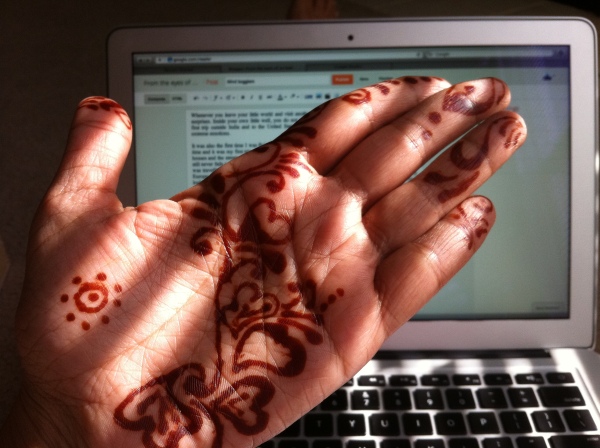My resolution for February is to write short posts (relatively), stay on the topic and show my readers some mercy by not making them read long tirades about nothing. Seriously, I myself cannot make any sense of some of the old posts when I go through them now. I think I have a real talent for going on and on about stuff. Notice how I wrote a whole paragraph about using less words?
Anyway, without prolonging it any further, here are the five things I do not understand, in the order of my decreasing tolerance for them.
1. Vitamin water: How about drinking regular water and eating some fruit for vitamins? The best things in life don’t necessarily come in a bottle with an ingredient list.
2. Kindergarten graduations: I kind of understand this, because I am a parent myself and know how much even a small accomplishment of our children means to us parents. On the other hand, I don’t understand it because it is kindergarten for goodness sake! No one made even half as big a deal when I got my post-grad degree. No parties, no presents, no pictures; although my folks were really happy and proud that I actually finished it in the stipulated number of years. Not that I am begrudging these kindergarteners all the praise and acclaims they get that I did not get for slogging (insert sarcasm)through student life!
3. Indians and queues: Okay, what is it about these two things that they don’t mix? When abroad, we behave just fine (I hope) in day to day life, at work, in public places. As soon as we are surrounded by other fellow Indians, the rebellious streak comes out. You can see that even at an airport when you are boarding a flight to India. People start jumping lines, ignoring others ahead of them completely, head held high like it is their birth right to jump lines. Go to a buffet style wedding dinner in India and you will know what I mean. Worst still, go to a public place during rush hour and any delusions you had about right to your personal space will vanish in thin air.
4. The ‘Cry it Out’ method: For my Indian friends who don’t know what this is about – it’s a parenting technique (sarcasm intended) that basically involves parents letting a child (even a baby) “cry it out” and learn to soothe themselves, instead of running like it’s the end of the world to pick them up and soothe them. I’m not even going to say anything about what I think of this method. Like a friend rightfully said – “when you don’t have anything nice to say, don’t say anything at all”. (But then, if I truly followed those words, I wouldn’t be writing any of this, would I?)
5. Religion: Actually I do understand religion, and believe in it. What I don’t understand is how it can be so important to somebody that they can fight and even harm others over it. For me, religion is just something humans ‘invented’ to try to understand the bigger power that created us. To find something to rely on in trying times. Because we are not as strong as we think we are and are always looking for something or somebody we can follow. Even if it is just a book, someone we don’t even know, wrote thousands of years ago. Why is that book more important than the living people around us – that is what I don’t understand. Sorry if any of you find this offensive. These are just my thoughts and I am not talking about any one religion in particular here, just all of them in general.
Once again, thanks for reading this very short post. Feel free to comment and let me know if you loved it or hated it.

